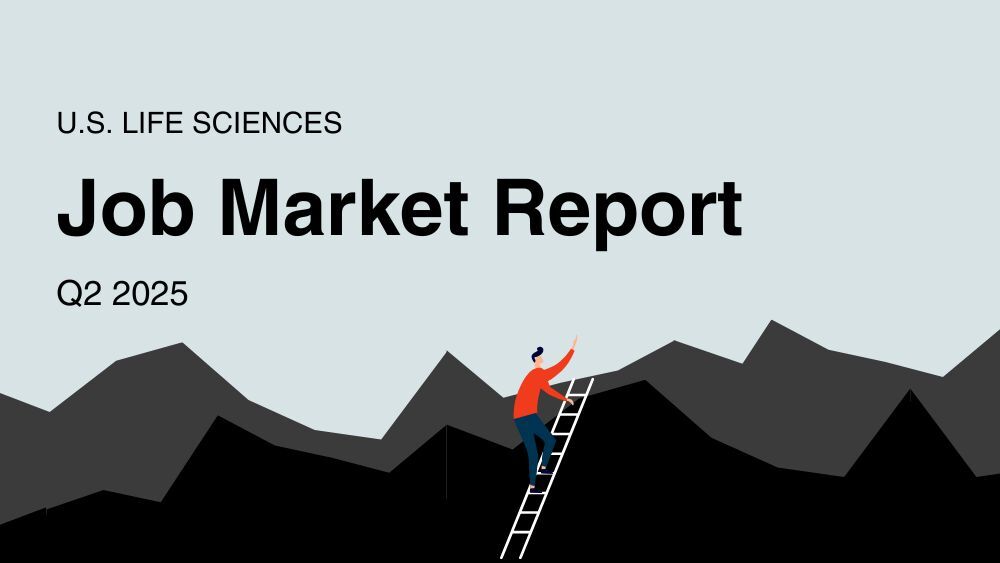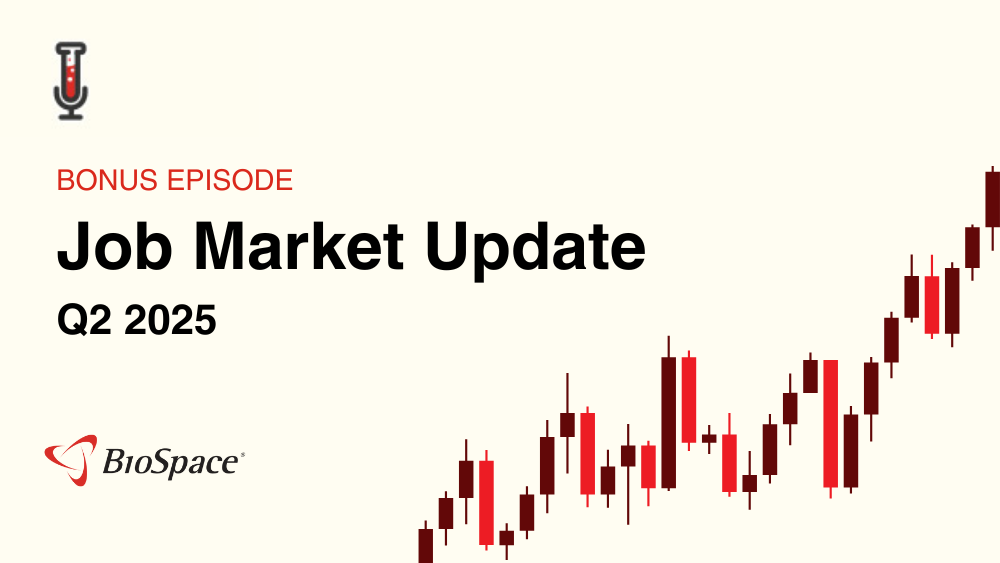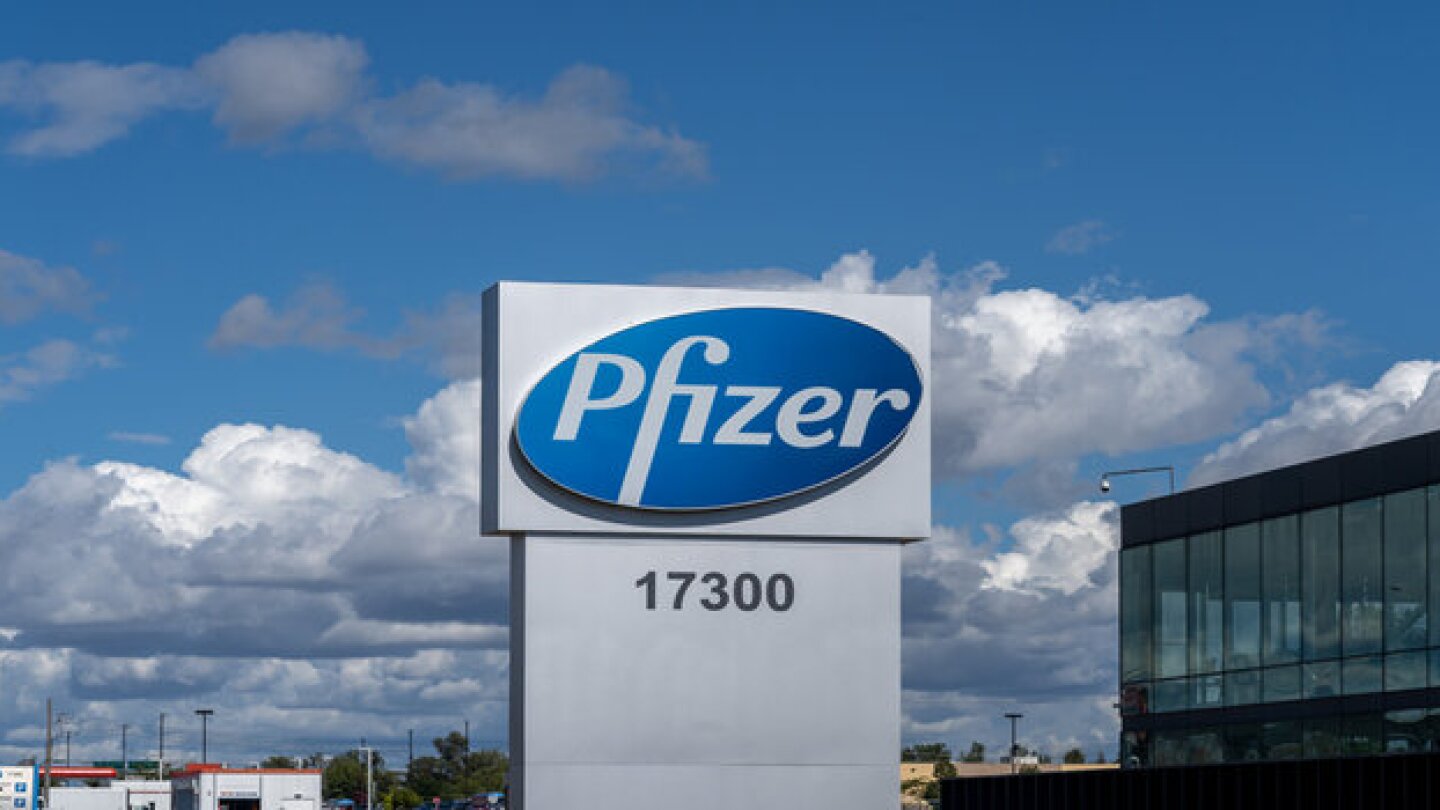News
Varegacestat, a gamma secretase inhibitor, significantly improved progression-free survival while also meeting all key secondary endpoints in the pivotal RINGSIDE trial. Immunome is planning an FDA application for the second quarter of 2026.
FEATURED STORIES
What China is accomplishing in R&D “has implications for everyone playing in the R&D or innovation world,” McKinsey’s Fangning Zhang says.
As the FDA unveils a parade of initiatives aimed at accelerating drug development for rare diseases, experts appeal for a consistent approval process that will support and further catalyze momentum.
The R&D pipeline for depression therapies faced a demoralizing 2025 as five high-profile candidates, including KOR antagonists by Johnson & Johnson and Neumora Therapeutics, flunked late-stage clinical trials, underscoring the persistent challenges of CNS drug development.
Job Trends
The life sciences job market continues to shift. BioSpace’s Q2 2025 U.S. Life Sciences Job Market Report is now available, offering exclusive insights into the latest hiring trends, layoffs, and workforce dynamics across the life sciences industry.
FROM OUR EDITORS
Read our takes on the biggest stories happening in the industry.
While it’s not unusual for certain positions to turn over with a new administration, the number of senior-level FDA staffers who have recently left the agency is unprecedented. The lack of communication, transparency and human decency is as well.
THE LATEST
Pfizer is in the midst of an aggressive, multi-year cost-cutting effort, which so far has left nearly 2,000 people jobless.
In this episode of Denatured presented by AnaptysBio, Jennifer Smith-Parker speaks to Dr. Joe Murray, Mayo Clinic; Marilyn Geller, the Celiac Disease Foundation; and Dr. Paul Lizzul, AnaptysBio, about the challenges and opportunities facing celiac disease treatment.
Looking for a new opportunity in New Jersey? These nine companies have open roles that could be a great fit for you.
The difference between a job and a career is what you walk away with when it ends. Here’s how to evaluate if your role and environment are enabling capability building–and if your title is holding you back.
Backed by Italy-based Fondazione Telethon ETS, Waskyra, for Wiskott-Aldrich syndrome, is the first gene therapy from a non-profit sponsor to win FDA approval.
The FDA has informed Merck, Sanofi and AstraZeneca of the safety investigation into their RSV antibodies, though it remains unclear what regulatory action, if any, will be taken.
The Commissioner’s National Priority Voucher program was launched in June to shorten review times for companies that align with various national priorities, such as improving domestic drug production and supply.
Pfizer deals again in obesity space as Wave and Structure drop splashy weight loss results; what CDER Director Richard Pazdur’s sudden retirement means for biopharma; neuro diseases take center stage at CTAD; and more.
With $6 billion left in firepower, Pfizer is planning transactions in the hundreds of millions to the low-billions range, particularly in internal medicine and immunology and inflammation, Guggenheim reported.
Long a quieter, locally focused industry, Japanese pharma giants are increasingly looking to the rest of the world for deals.






















